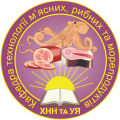V Науково-практична конференція з міжнародною участю. Застосування дієтичних добавок: Коли? Кому? Та з якою метою?
ШАНОВНІ КОЛЕГИ!
Запрошуємо вас взяти участь в останній науковій та освітній конференції цього року, яка буде присвячена застосуванню дієтичних добавок.
Експерти, яких було запрошено в якості спікерів цього року, представлять аргументи "за" та "проти" дієтичної саплементації у контексті впливу на широкий спектрі фізіологічних та патогічних процесів в організмі людин.
Захід відбудеться у найближчі четвер та п'ятницю, 14-15-го грудня 2023 р. Програма конференції нижче. Зареєструватися для участі можна через посилання у першому коментарі. Чекаємо на вас у віртуальній аудиторії та на ваші цікаві питання у чаті.





